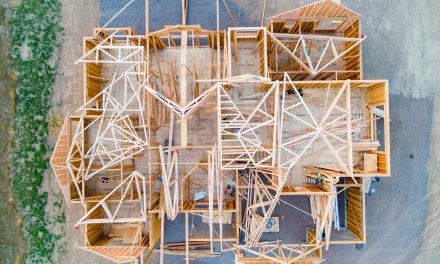SB 2923, which will give affordable housing near BART stations a boost, is headed for the governor’s desk.
Bay Area Rapid Transit (BART) connects San Francisco, Oakland, Fremont, Richmond and Berkeley, among other cities. Serving over 400,000 riders a day, BART is an integral part of the Bay Area’s success as a major center of jobs, culture and living. Now, legislators are directing it to help out with the area’s housing shortage.
The bill requires BART’s board to adopt transit-oriented development (TOD) standards aimed at increasing housing near BART stations by July 1, 2020. Specifically, BART will need to develop new zoning rules on BART-owned land near its stations for minimum:
- building height;
- density;
- parking requirements; and
- floor-area ratio.
Local governments will be required to adopt zoning rules consistent with BART’s new standards by 2022. If a local government fails to adopt new standards that conform with BART’s zoning changes by 2022, BART’s zoning changes will be adopted in full by the local government for those areas near BART stations.
Further, certain projects which meet BART’s standards will receive streamlined approval, shortening the lengthy building process.
The bill requires 20% of the new housing to be affordable for low- and very-low income households, though BART’s self-set goals are for 35% of its housing to be affordable.
Most of this new housing will be created by building on top of existing parking lots for BART customers. While BART is directed to replace these parking lots when it builds, research by BART shows less parking is needed for residents located near transit stations anyway. For example, nearly 60% of households located within half-a-mile of a BART station own one or zero cars, compared with 20% of Contra Costa County as a whole.
Just how much new housing will this bill put in motion?
The answer lies almost solely in the hands of BART, but may be as high as 20,000 new units in the coming years, depending on how much of the 250 acres BART currently owns near its stations it decides to develop.
Have local governments lost their chance at zoning?
TODs are not a new idea. In fact, BART already oversees 13 existing TODs on BART property, plus seven projects still in the development process.
Close proximity to transit is a valuable commodity in the Bay Area. Housing already located within half a mile of a BART station enjoys property values 15%-18% higher than similar homes located further from BART, and office space located near BART also commands higher rents.
BART is able to capitalize on the high rents and property values from its existing TODs to reinvest in itself, improving and expanding transit projects, seemingly making TODs a win-win for BART and residents alike.
But some are concerned about giving BART authority to create its own zoning rules. Typically, local governments have direct authority over zoning decisions. But this move is part of a larger statewide trend towards seizing control over zoning issues away from local governments, and members of those local governments aren’t happy.
In fact, most of the cities directly affected by the bill have officially opposed it, as has the California chapter of the American Planning Association.
But, as the saying goes, drastic times call for drastic measures. California’s housing shortage hit its tipping point a long way back, hitting low-income residents particularly hard. Local governments have zoned too tightly, making it too difficult for developers to build in desirable areas. As a result of the lack of construction, the state’s homeless population has increased rapidly and the number of people moving to other states is rising.
More residential construction is needed in the Bay Area and across the state. This bill is a positive step in the direction needed to alleviate California’s housing crisis.
Related article:















Thanks for highlighting this legislative move. That BART build housing inclusive of low income too, above their existing parking is both logical and brilliant, though am sure the empty headed will now start slinging mud. There must be something they can complain about or accuse you again of “bringing politics into real estate.”